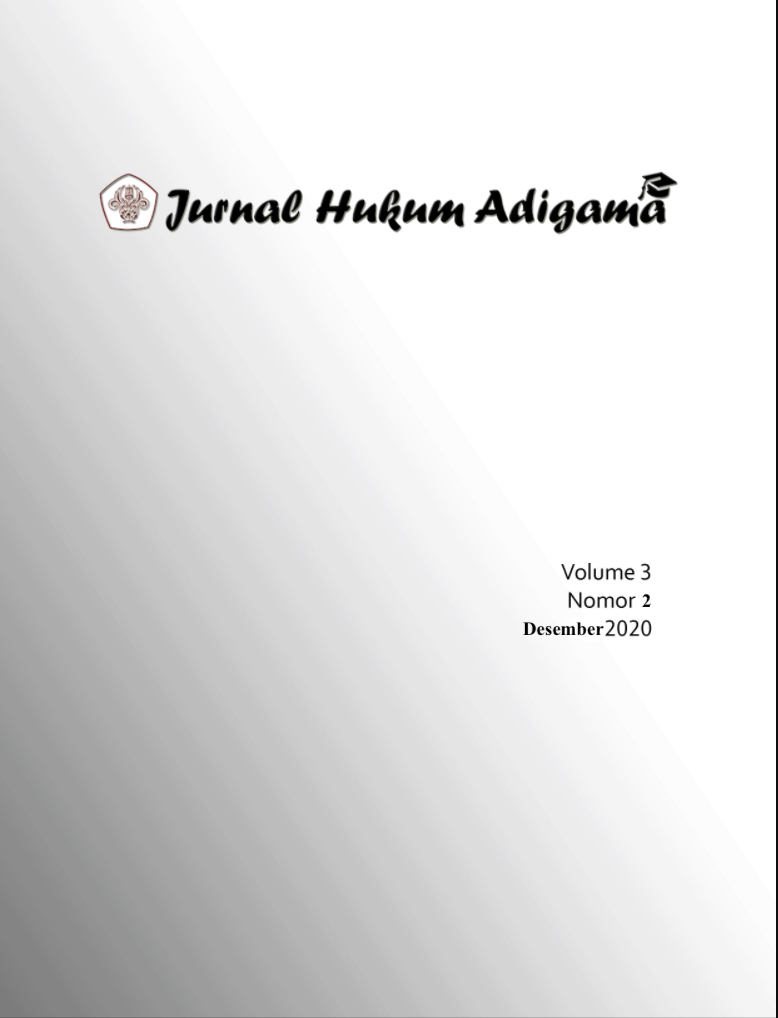PERTANGGUNGJAWABAN MYANMAR ATAS TINDAKAN GENOSIDA TERHADAP KELOMPOK ETNIS ROHINGYA BERDASARKAN GENOCIDE CONVENTION 1948
Main Article Content
Abstract
Article Details
Section
This work is licensed under a Jurnal Komunikasi Creative Commons Attribution-ShareAlike 4.0 International License.
References
Buku
Battistella, Graziano. “Rohingyas: The People for Whom No One Is Responsible”, dalam International Migration Policy Report, 7. New York: Center for Migration Studies of New York, September 2017.
Elahi, K. Maudood. "The Rohingya Refugees in Bangladesh: Historical Perspectives and Consequences” dalam Refugees: A Third World Dilemma, diedit oleh John Rogge, 231. New Jersey: Rowman and Littlefield, 1987.
Habib, Mohshin at al. Forced Migration of Rohingya: The Untold Experience. Ottawa: Ontario International Development Agency, 2018.
Schabas, William A. Genocide in International Law: The Crimes of Crimes. Edisi ke-2. New York: Cambridge University Press, Juli 2009.
Skutsh, Carl. (ed) Encyclopedia of the World’s Minorities. New York: Routledge, 2005.
Smith, Martin. Burma: Insurgency and the politics of ethnicity. London: Zed Books, 1991.
Peraturan Perundang-Undangan
International Law Commision. Draft Articles on Responsibility of States for Internationally Wrong Acts (ARSIWA) 2001.
UN General Assembly. Convention on the Prevention and Punishment of the Crime of Genocide (Genocide Convention) 1948.
United Nations. Universal Declaration of Human Rights 1948.
United Nations. Vienna Convention on the Law of Treaties 1969.
Putusan Pengadilan
ICJ. Case Concerning Application of the Convention on the Prevention and Punishment of Genocide, Bosnia Herzegovina v. Yugoslavia (Serbia and Montenegro), Putusan. 27 februari 2007.
ICJ. Case Concerning Application of the Convention on the Prevention and Punishment of Genocide, (Croatia v. Serbia). Putusan,. 3 Februari 2015.
Jurnal
Annacker, Claudia. “Part Two of International Law Commission’s Draft Articles on State Responsibility”. German Yearbook of International Law. Volume 37 (1994): 222.
Aung, Tun Tun. "An Introduction to Citizenship Card under Myanmar Citizenship Law". Journal of the Study of Modern Society and Culture. Edisi 38 (Maret 2007): 271.
Cheesman, N. “How in Myanmar “National Races” Came to Surpass Citizenship and Exclude Rohingya”. Journal of Contemporary Asia. Volume 47, Issue 3 (15 Maret 2017): 461-483. Diakses tanggal 8 Agustus 2020. https://doi.org/10.1080/00472336.2017.1297476
Website
Ahmed, Akbar. "The Rohingya: Myanmar's outcasts". https://www.aljazeera.com/opinions/2012/1/30/the-rohingya-myanmars-outcasts/. Diakses tanggal 30 November 2020.
Danish Refugee Council, European Commission’s Directorate-General for European Civil Protection and Humanitarian Aid Operations, United Nations High Commissioner for Refugees CCM Cluster, Joint IDP Profiling Service, “Sittwe Camp Profiling report”. Juni 2017, https://reliefweb.int/sites/reliefweb.int/files/resources/sittwe_camp_profiling_report_lq.pdf. Diakses pada 07 Desember 2020.
International, Amnesty. “We Are at Breaking Point”: Rohingya: Persecuted in Myanmar, Neglected in Bangladesh”. https://www.amnesty.org/download/Documents/ASA1653622016ENGLISH.PDF. Diakses pada 01 September 2020.
Lintner, Bertil. “Bangladesh Extremist Islamist Consolidation”, South Asia Terrorism Portal. https://www.satp.org/satporgtp/publication/faultlines/volume14/Article1.htm. Diakses tanggal 30 November 2020.
OHCHR - United Nations Fact-Finding Mission, “Report of the Detailed Findings of the Independent International Fact-Finding Mission on Myanmar” A/HRC/39/CRP.2, 17 September 2018. https://www.ohchr.org/en/hrbodies/hrc/myanmarFFM/Pages/ReportoftheMyanmarFFM.aspx. Diakses pada 19 Februari 2020.
Reuters. “Two years on, a look at the Rohingya crisis”. https://www.reuters.com/article/us-myanmar-rohingya-timeline/two-years-on-a-look-at-the-rohingya-crisis-idUSKCN1VD044. Diakses pada 21 Februari 2020.
Special Rapporteur on the Declaration on the Elimination of All Forms of Intolerance and of Discrimination Based on Religion or Belief: “Implementation of the Declaration on the Elimination of All forms of Intolerance and of Discrimination based on religion or belief”. https://undocs.org/E/CN.4/1993/62. Diakses pada 11 Maret 2020.
United Nations Human Right Council. “Independent International Fact-Finding Mission on Myanmar”. https://www.ohchr.org/en/hrbodies/hrc/myanmarffm/pages/index.aspx. Diakses pada 18 Maret 2020.
________________________________. “UN Independent International Fact-Finding Mission on Myanmar calls on UN Member States to remain vigilant in the face of the continued threat of genocide.” https://www.ohchr.org/EN/NewsEvents/Pages/DisplayNews.aspx?NewsID=25197&LangID=E. Diakses pada 8 Agustus 2020.
United Nations Office of High Commissioner of Human Right (OHCHR). “Flash Report 2017”. https://www.ohchr.org/Documents/Countries/MM/FlashReport3Feb2017.pdf Diakses pada 03 Desember 2020.

